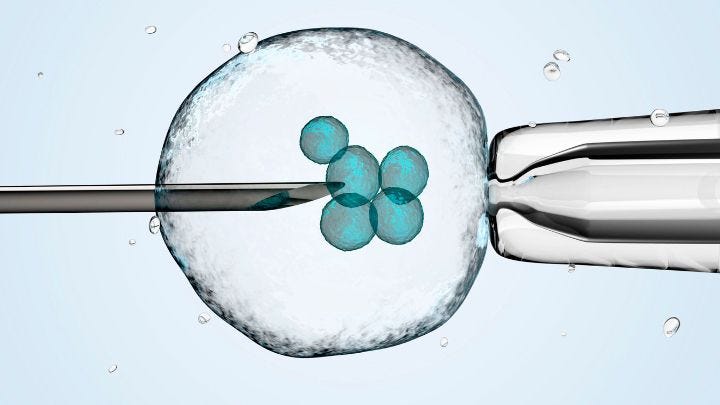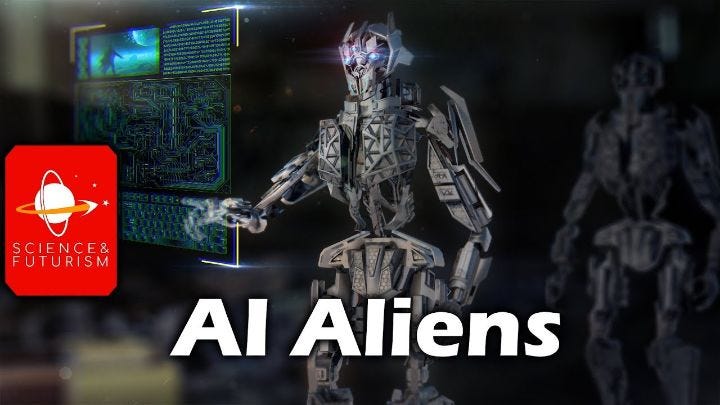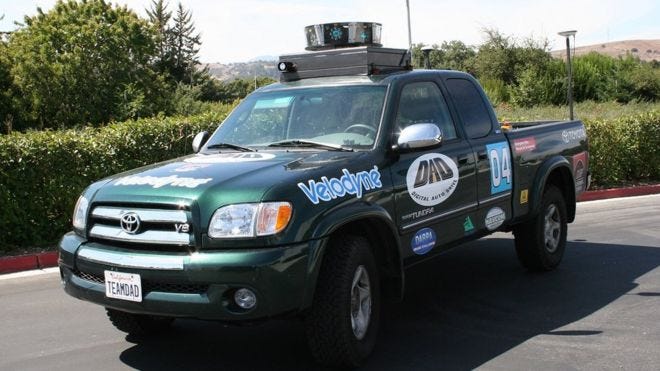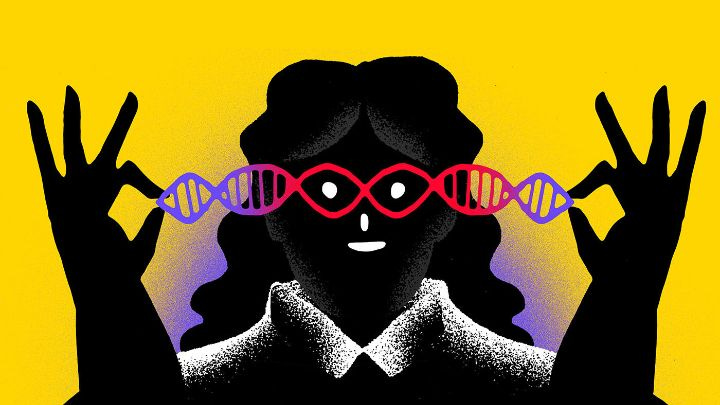Issue #233 - designer babies and CRISPR's unwanted anniversary; how can AI aliens look like; goodbye, Cortana; and more!
View this email in your browser
This week - designer babies and CRISPR's unwanted anniversary; how can AI aliens look like; goodbye, Cortana; how to recognise AI snake oil; and more!
MORE THAN A HUMAN
Designer baby revolution could be only two years away, research suggests

It could be less than two years until the creation of "ethically sound" designer babies begins, says one expert. The risks of gene editing are now low enough to justify using the technique with human embryos, according to a new analysis by Dr Kevin Smith, from Abertay University in Dundee. He argues that in a few years a morally justifiable attempt could start a revolution in producing genetically-modified people.
Terminally ill scientist 'transforms himself into world's first full cyborg'
Dr Peter Scott-Morgan, who is terminally ill with a muscle wasting disease says he has transformed into “the world’s first full cyborg”. The 61-year-old announced he was planning to upgrade both his body and brain to become “the most advanced human cybernetic organism ever created in 13.8 billion years”. And this week the roboticist from Torquay in Devon emerged from 24 days in intensive care to reveal that “Peter 2.0 is now online”.
► Is a Brain Upload Possible? Max Tegmark on Whole Brain Emulation (3:00)
During the World Science Festival, Max Tegmark was asked is the brain upload possible. Tegmark said that as human DNA can be stored in digital form, then why shouldn't the brain be an exception here. He also shared an interesting idea of how two different ways for achieving flight - making a mechanical bird vs making an airplane - can teach us that full brain upload might happen in a way we don't expect today.
ARTIFICIAL INTELLIGENCE

Isaac Arthur discusses how can an alien AI look like and what sort of circumstances we'd encounter them, and if they may be the only aliens we ever encounter.
Will AI Ever Replace Designers?
Will we ever see human-like intelligence being applied to the design world in a way that puts designers out of a job? Jon Yongfook thinks no and lists Good design is too subjective, Design goals are fuzzy and There's no commercial application for it why AI will not replace designers anytime soon. But it might automate some tasks, nevertheless.
Farewell, Cortana
Microsoft is dropping Cortana, its AI assistant, in Great Britain, Australia, Germany, Mexico, China, Spain, Canada, and India. Despite dropping the app in these regions, Cortana itself remains “an integral part” of the company’s business model to incorporate “conversational computing and productivity” into its products according to the spokesperson, so Microsoft doesn’t appear to be closing the coffin on it entirely.
Opinion: AI For Good Is Often Bad
Despite good intentions, the AI for good projects often backfire. This article argues that applying AI to complex global problems without understanding the root cause of the problems or just deploying AI solution just because it is AI can cause more damage.
We’re Making Progress in Explainable AI, but Major Pitfalls Remain
Machine learning algorithms cannot explain the decisions they make. How can we justify putting these systems in charge of decisions that affect people’s lives if we don’t understand how they’re arriving at those decisions? This desire to get more than raw numbers from machine learning algorithms has led to a renewed focus on explainable AI: algorithms that can make a decision or take an action, and tell you the reasons behind it.
How to recognize AI snake oil
In this slide deck, Arvind Narayanan teaches how to spot a bogus application of AI and how it can do more harm than good, with the main conclusion being that "AI excels at some tasks, but can’t predict social outcomes".
ROBOTICS
Artificial eyes: How robots will see in the future

Giving autonomous cars a sense of sight is quite important. Right now, the options are lidar, cameras, ultrasonic sensors and radar. Each one of them comes with its own pros and cons, and even personal preferences.
Bipedal Robot Cassie Cal Learns to Juggle
This is even more impressive when you learn that Cassie is a robot that has no arms. It juggles using its "head". Check the video for more details.
BIOTECHNOLOGY
The Dawn of Cheap and Easy DNA Writing

Reading DNA is easy. Writing DNA is a way harder task. This article describes how three companies - Molecular Assemblies, Ansa Biotechnologies and DNA Script - try to solve the problem of cheap and easy DNA writing.
CRISPR's unwanted anniversary
Jennifer Doudna, one of the CRISPR pioneers, reminds about an "unwanted" anniversary. A year ago, He Jiankui announced the birth of first genetically modified humans. Doudna praises the global scientific community for their reaction to the news. "The “CRISPR babies” saga should motivate active discussion and debate about human germline editing. With a new such study under consideration in Russia, appropriate regulation is urgently needed. Consequences for defying established restrictions should include, at a minimum, loss of funding and publication privileges. Ensuring responsible use of genome editing will enable CRISPR technology to improve the well-being of millions of people and fulfill its revolutionary potential", she writes.
Thank you for subscribing,
Conrad Gray (@conradthegray)
If you have any questions or suggestions, just reply to this email or tweet at @hplusweekly. I'd like to hear what do you think about H+ Weekly.
Follow H+ Weekly!



